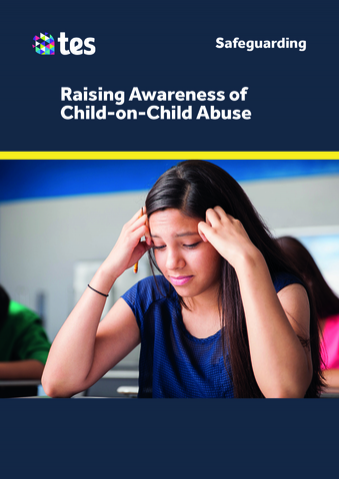
5 steps to take to prepare for KCSIE 2018
Whilst many practitioners are now familiar with the update to Keeping children safe in education (KCSIE), what many are asking is how it affects them and what actions they need to take to be compliant.
To help prepare, here are our recommendations:
1. Understand Contextual Safeguarding
A new term of ‘Contextual Safeguarding’ has been introduced. This means considering the location and culture of your school or college and assessing the risks that young people may be exposed to, both inside and outside of the school or college community. This is contextual safeguarding.
With the addition of part 5, the new guidance pulls into focus the big issues that schools are being faced regarding sexual violence and sexual harassment between children. The designated safeguarding lead should have a complete safeguarding picture and so will be best placed to think of child protection within that contextual safeguarding way.
2. Clarify the extended role of the Designated Safeguarding Lead (DSL) and the job description of the Deputy Designated Safeguarding Lead
The update now confirms that the DSL should now be in a primary position to have a complete safeguarding picture.
Part 1 of the updated guidance clearly demonstrates that the DSL’s role is in the wider
Any deputies should be trained to the same standard as the designated safeguarding lead and this should be clarified in their job description.
3. Include Peer-on-peer abuse in policy updates and ensure all staff are clear as to the school or college’s policy and procedures with regards to peer on peer abuse
More acknowledged types of abuse have been brought into the update to KCSIE and it is now specified that all staff should be aware that safeguarding issues can manifest themselves via peer on peer abuse.
Whilst peer-on-peer abuse is not new, the links with the new part 5
4. Review and update all existing policies
The updated document has been available on the DfE website since June 2018, and as such, Ofsted will probably expect to see school policies referring to the updated guidance. As well as the key update to include peer-on-peer and the new part 5,
All staff should be aware of any child missing from education. Early intervention is important, so any safeguarding or wellbeing issues can be acted on.
It is clarified that children with SEN are more vulnerable and policies around this should reflect this fact.
Paragraph 174 states that when a child is placed within alternative provision, the school retains the safeguarding responsibility. Schools will need to ensure their policies are updated to reflect that.
Other
5. Ensure training is up to date
Now is a good time to ensure that all training courses cover all that is required in KCSIE 2018. Child Protection training should be more than basic awareness of signs and types of abuse, all staff should also know how to deal with a referral.
As schools look to provide all staff with refresher training, practitioners should look at what training is being delivered, and what the content of the training is. The whole school community, from caretakers to headteachers, need to be mindful
Part 1 should be circulated to all staff at the start of the new school term on 3rd September 2018.
Those staff who work directly with children should read Annex
EduCare can help
All of EduCare’s Child Protection course library has been updated to refer to the update to KCSIE and a new course on Raising Awareness of Peer-on-Peer abuse has been launched.
All customers who use the EduCare for Education® service will automatically be given access to the new and updated courses.
Get in touch to find out more
Note: All settings should continue to have regard to KCSIE 2016 until 3rd September
Return to newsRaising Awareness of Child-on-Child Abuse
Child-on-Child abuse is any form of physical, sexual, emotional, financial, and/or coercive control exercised between children and young people; this includes intimate and non-intimate relationships.
Read moreRaising Awareness of Child-on-Child Abuse
The purpose of this course is to help you:
- understand what peer-on-peer abuse is
- understand the different types of child-on-child abuse
- understand who child-on-child abuse may affect and what external influences there are
- be aware of the prevalence of child-on-child abuse
- understand social norms and peer pressure
- recognise early signs that might indicate abuse
- know what action to take if you know or suspect that a young person is experiencing abuse
- implement preventative strategies within school or college.
KCSIE 2018: 5 recommendations for training topics for inset days
Plan your inset days to ensure staff are trained and will be compliant with KCSIE 2018
Read more

